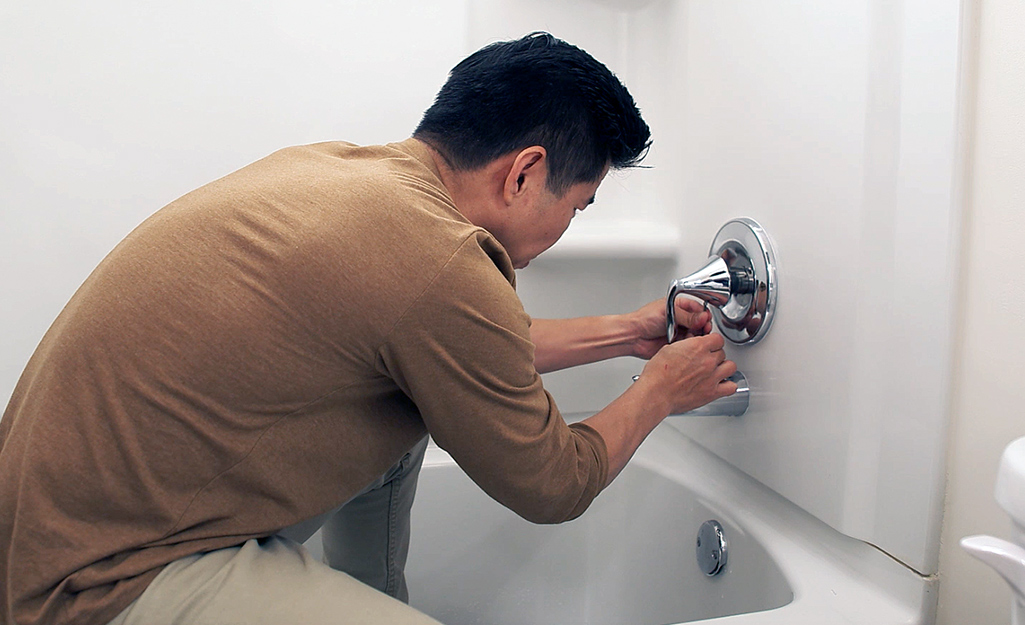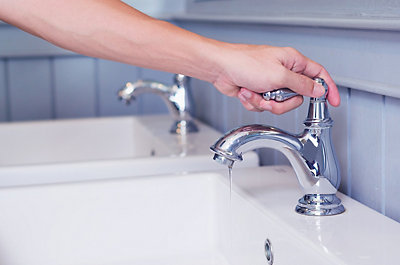What It's Vital to Fix a Broken Faucet
What It's Vital to Fix a Broken Faucet
Blog Article
How do you feel when it comes to How to Fix a Dripping or Leaky Faucet ?

Dripping taps may look like a minor inconvenience, but their influence surpasses simply the annoyance of the audio. From wasting water to sustaining unnecessary monetary costs and wellness risks, disregarding a dripping faucet can bring about numerous effects. In this write-up, we'll explore why it's critical to address this typical family problem immediately and successfully.
Wastefulness of Water
Ecological Impact
Dripping taps contribute dramatically to water wastage. According to the Environmental Protection Agency (EPA), a single tap trickling at one drip per secondly can throw away more than 3,000 gallons of water each year. This not just stress water resources but additionally affects environments and wildlife dependent on them.
Financial Prices
Boosted Water Bills
Beyond the ecological impact, leaking faucets can blow up water bills considerably. The accumulated wastefulness over time translates into higher utility costs, which might have been prevented with prompt fixings.
Possible Residential Or Commercial Property Damages
Furthermore, prolonged dripping can cause harm to components and surface areas surrounding the tap. Water accumulation can create discoloration, rust, and also structural issues if left ignored, resulting in added fixing costs.
Health Worries
Mold And Mildew and Mold Growth
The constant presence of wetness from a dripping tap produces an excellent atmosphere for mold and mildew and mildew growth. These fungis not just jeopardize indoor air high quality but also pose health and wellness risks, especially for individuals with breathing problems or allergic reactions.
Waterborne Illness
Stationary water in dripping faucets can become a breeding place for microorganisms and various other microorganisms, enhancing the threat of waterborne illness. Impurities such as Legionella bacteria prosper in stationary water, possibly resulting in severe illnesses when ingested or inhaled.
Do it yourself vs. Specialist Fixing
Advantages and disadvantages of Do It Yourself Fixing
While some may try to deal with a dripping faucet themselves, DIY repair services come with their very own collection of challenges. Without correct knowledge and tools, do it yourself efforts can intensify the problem or bring about insufficient repair work, lengthening the trouble.
Benefits of Employing an Expert Plumber
Working with an expert plumber makes sure that the underlying reason for the leaking tap is addressed efficiently. Plumbing professionals possess the competence and tools to detect and fix tap concerns successfully, conserving time and decreasing the threat of more damages.
Step-by-Step Overview to Repairing a Dripping Faucet
Tools Required
Before attempting to deal with a dripping faucet, gather the needed tools, consisting of a flexible wrench, screwdrivers, substitute components (such as washers or cartridges), and plumber's tape.
Common Faucet Issues and Their Solutions
Recognize the kind of tap and the specific issue causing the drip. Common problems consist of damaged washing machines, corroded valve seats, or faulty O-rings. Describe supplier instructions or on-line tutorials for detailed advice on fixings.
Safety nets
Normal Upkeep Tips
To stop trickling faucets, carry out regular upkeep such as cleansing aerators, evaluating for leaks, and changing damaged parts quickly. Furthermore, consider setting up water-saving gadgets or upgrading to much more efficient components.
Relevance of Prompt Services
Addressing trickling faucets as quickly as they're discovered prevents more water waste and potential damage, eventually saving both water and cash in the future.
Effect On Residential Property Worth
Perception of Well-Maintained Home
Maintaining a home in good condition, including addressing maintenance issues like leaking faucets, enhances its viewed value and worth amongst prospective purchasers or lessees.
Impact on Resale Value
Characteristics with well-kept plumbing fixtures, including faucets, command greater resale values in the realty market. Addressing leaking taps can contribute to a positive impact throughout building assessments and negotiations.
Ecological Duty
Individual Payment to Preservation
Taking responsibility for fixing trickling taps lines up with wider efforts toward water preservation and environmental sustainability. Every person's actions jointly make a considerable effect on protecting priceless resources.
Sustainable Living Practices
By prioritizing prompt repair services and taking on water-saving behaviors, people contribute to lasting living methods that profit both existing and future generations.
Conclusion
Resolving a dripping faucet surpasses plain comfort; it's a vital step toward saving water, minimizing monetary expenses, and securing health and property. Whether via do it yourself repair services or specialist help, taking action to take care of leaking faucets is a tiny yet impactful method to advertise responsible stewardship of resources and add to a much healthier, a lot more sustainable future.
How to Fix a Leaky Faucet: Step-by-Step Repair Guide
A leaky faucet may seem like a simple annoyance, but if it's not fixed promptly, that leak could cost hundreds to potentially thousands. From water damage to mold, mildew, and high water bills, even a tiny leak can be catastrophic if left unattended. Damage like this can even affect the overall value of your home, so it's important to take the right approach for leaky faucet repair. You may need the help of a plumber in some cases, but we've got a few tips you can try on how to fix a leaky faucet before calling the pros.
Four Faucet Types
When you're learning how to fix a leaky faucet, the first step is knowing what kind of faucet you're working with! There are four common types.
Cartridge Faucets
Cartridge faucets come in one- or two-handled varieties. In one-handled cartridge faucets, hot and cold water combines in a single cartridge. In the two-handled versions, hot and cold water are controlled separately and mixed in the faucet.
Ball Faucets
Ball faucets have a single lever you push up and down to adjust the pressure and rotate to change the temperature. A slotted metal ball controls the amount of water allowed into the spout.
Compression Washer Faucets
They're the oldest type of faucet, but they're still used in many homes — especially older ones. Compression faucets have two separate handles that, when turned, raise or lower the washer that seals a water valve. This valve stops water from flowing through the faucet when it is turned off.
Disc Faucets
Disc faucets rarely need to be repaired due to their maintenance-free design. The water flow is controlled by two discs — the upper one raises and lowers against a fixed lower disc, creating a watertight seal. If your disc faucet starts leaking, you may need to replace the seals or clean residue buildup from the inlets.
Fixing a Leaky Faucet
Step 1: Turn Off the Water
Whether you're learning how to fix a leaky bathtub faucet or how to fix a leaky kitchen faucet, always turn off the water supply to your working area when you're fixing a leak. The last thing you want is a flood added to your list of things to fix.
Look for the shutoff valves below your sink or around the tub and turn them clockwise to stop the water flow. If your faucet doesn't have shutoff valves, you may need to turn off the water for the whole house. Check to make sure it's off by turning the faucet on. If nothing comes out, you're ready to start the repair.
Step 2: Take Apart the Faucet
How you disassemble your faucet depends on the type of fixture you have. You can use a flathead screwdriver to remove the caps on top of the handle or handles for cartridge and compression faucets. Inside, you should see handle screws. Unscrew these with a screwdriver to remove the handle.
Disc- and ball-style faucets will typically have an inlet screw near the handle, and removing that will reveal the interior of the faucet.
Detach the Valve Stem
For cartridge- and compression-style faucets, you'll see the inner valve stem or cartridge once you remove the faucet handles. If you have a compression faucet, unscrew the brass valve stem. If you have a cartridge faucet, pull out the cartridge. If your cartridge has been in place for a while, it may require some tools or extra force to remove it due to mineral deposits.
Examine and Replace Parts
Once you've removed the parts, check them out to confirm what needs to be replaced. You may see corroded rubber washers, O-rings, stems, or cartridges. On a ball-style faucet, check the seats and springs for damage.
If you need to repair a leaky disc faucet, check the inlet and seals on the lower disc.
Once you determine what parts must be replaced, visit your local hardware store. Bring the damaged parts with you to ensure you can purchase the correct components to replace them.
Clean Valves and Faucet Cavity
If you've removed a stem or cartridge, you may notice mineral buildup in the faucet's threads. Use white vinegar to clean the valve seat by soaking it for a few minutes, then scrub it away with a soft toothbrush and rinse with warm water. You can also clean the interior of the faucet in the same way.
Reassemble the Faucet
Once your faucet is cleaned and the required parts have been replaced, it's time to reassemble it. Put the pieces back together and slowly turn the water supply back on. Doing this slowly is crucial because too much initial water pressure can damage the new hardware you've just installed.
https://homewarranty.firstam.com/blog/how-to-fix-leaky-faucet

I am just very curious about 4 Common Reasons for a Leaky Faucet and I hope you liked the entire page. Enjoyed our article? Please quickly share it. Help another person find it. Thank you so much for going through it.
Report this page